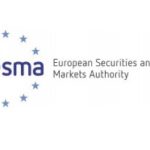The United Nations Conference on Trade and Environment (UNCTAD) has released new guidelines on eco-efficiency indicators that link the environmental performance of corporations to their financial performance.
The guidelines have now been adopted by Ciba Specialty Chemicals, making it the first multinational company to base its environmental reporting on the
UNCTAD model.
The Manual for the Preparers and Users of Eco-efficiency Indicators (available for download in PDF format here) is one of the first publications in the field of corporate environmental accounting to standardize the presentation and disclosure of a companys environmental performance and how this relates to financial results. It describes a method for providing systematic and consistent information on environmental performance over time. Such information cannot be assessed by the conventional accounting model but is increasingly demanded by stakeholders, especially in the post-Enron era.
The guidelines meet this need by using financial and environmental performance indicators together to measure a companys progress in attaining eco-efficiency or sustainability. Intended for both preparers and users of financial statements, they cover accounting treatment of such areas as water use, energy use, contributions to global warming, ozone-depleting substances and waste. More than 50 tables provide an array of pertinent data, including net caloric values for various energy products, electricity-derived CO2 emission factors by region, the ozone depletion potential of controlled substances and lists of hazardous characteristics excerpted from the 1989 Basel Convention on the control of transboundary movements of hazardous wastes.
"To achieve sustainable development, sustainable value or sustainable business, enterprise management must take into account the impact of their performance on their employees, their customers, their suppliers and the community, including its environment", says Rubens Ricupero, Secretary-General of UNCTAD, in a preface to the manual. "The precise correlation between improved environmental performance of an enterprise and its bottom line is extremely difficult to prove because of the many factors that can affect profits . However, the concept of eco-efficiency, where increased profits are achieved under conditions of declining environmental impact, demonstrates such a link."
"By linking key environmental parameters to its gross profit results starting already in 2001, we were able to demonstrate how our high-quality products add value throughout the value chain, using fewer resources and minimizing environmental impact", comments Armin Meyer, Chairman and Chief Executive Officer of Ciba Specialty Chemicals. "The new UNCTAD guidelines are well founded and forward looking and support our earlier initiatives. Therefore, effective this year we are reporting our environmental performance in accordance with these guidelines." The company, he adds, "remains committed to being a responsible and environmentally aware company, while at the same time making a profit for its shareholders. One cannot be separated from the other".
UNCTAD, through the Intergovernmental Working Group of Experts on International Standards of Accounting and Reporting (ISAR), has been working on corporate environmental accounting since 1989. Industry experts, financial analysts, standard-setters, accounting practitioners, academics and environmental experts, provided inputs and comments to the new manual on eco-efficiency indicators. Its detailed explanations and examples will enable the preparers and users of eco-efficiency indicators to produce and interpret internally consistent environmental and financial information, thus improving the quality of environmental reporting and stakeholder satisfaction.
Based on the detailed definitions of five key eco-efficiency parameters in the UNCTAD manual, Ciba Specialty Chemicals is publishing in its Report on Environment, Health and Safety 2003 for the years 2000 to 2003 global figures on energy requirement, water used, global warming contribution, contribution to ozone depletion and waste. These parameters are presented as global totals, relative to production output as well as relative to net value added. The results were also submitted for verification to an independent, third-party company, Ellipson, which was involved in the development of the UNCTAD standards.



